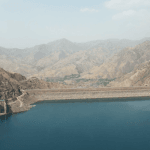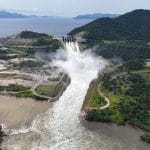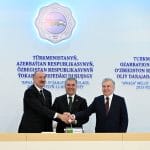Bulgaria is expanding an underground gas storage site to guard against any gas supply cuts from Russian gas monopoly Gazprom. The expansion is expected to nearly double the capacity of the storage from 550 million cubic metres to one billion cubic metres of gas.
Bulgaria plans to almost double the capacity of the Chiren storage at a total cost of more than €200 million in a part EU-funded project, aimed at boosting the Balkans’ energy security.
“The doubling of Chiren’s capacity is linked to the persistent ambition of Bulgaria to have Europe and its neighbours to support its wish to establish a ‘European gas hub’ in Bulgaria,” Peter Poptchev, a long-time Bulgarian ambassador-at-large for energy security, told New Europe on October 22, adding that any claim to be able to establish a regional gas hub should rely on at least one billion cubic metre underground storage facility. “The value of an enlarged storage for national energy security and gas security of supply is undeniable,” Poptchev noted.
The Bulgarian government has said it is working with neighbours Greece, Romania, Turkey and Serbia to ensure in future the country is no longer completely reliant on Russian gas.
Poptchev said the Interconnector Greece-Bulgaria (IGB) is potentially growing in importance in regard to all this because the gas hub in Bulgaria “cannot be fed on Russian gas only – regardless whether through Ukraine, or through a revived, reduced South Stream”.
Gas conflicts between Russia and Ukraine in 2006 and 2009 led Russia to push for the South Stream, and now the Turkish Stream, bypassing Ukraine. The EU is also pushing with its own diversifications efforts, striving to reduce its reliance on Gazprom.
The potential gas hub in Bulgaria has to have access to large volumes of alternative gas. The development of Azerbaijan’s Shah Deniz II field is expected to lead to the development of the Southern Gas Corridor, which will see gas piped through the South Caucasus Pipeline (SCP), Trans-Anatolian Pipeline (TANAP) and Trans-Adriatic Pipeline (TAP) to Europe. TAP can easily connect to the IGB when the pipe is ready.
Moreover, Poptchev said the dispatch Eastern Mediterranean gas from Cyprus and Israel is could be “accelerated” to Europe for commercial reasons – to preempt exports from Egypt’s giant Zohr field.
At the official ceremony in Vratsa on October 20 launching a new exploitation drill, which is expected to set the start of a process of modernisation of Bulgaria’s Chiren gas depot, the country’s energy minister, Temenuzhka Petkova, referred to another gas project on Bulgaria’s territory – the Romania-Bulgaria Interconnector. “I very much hope we will be able congratulate one another at the beginning of next year on the first interconnector of our country that will be between Bulgaria and Romania,” Petkova noted.
She said gas transmission along the interconnector would begin the moment it is ready. She said Bulgaria is holding negotiations with Romania and the latter has committed to building a compressor station on its territory. Petkova said Bucharest has included this compressor station in Romanian Transgaz investment plan, so “I hope it will become a fact. This will give us the opportunity for a reverse [flow] connection, which is highly important for this project”.
follow on twitter @energyinsider







